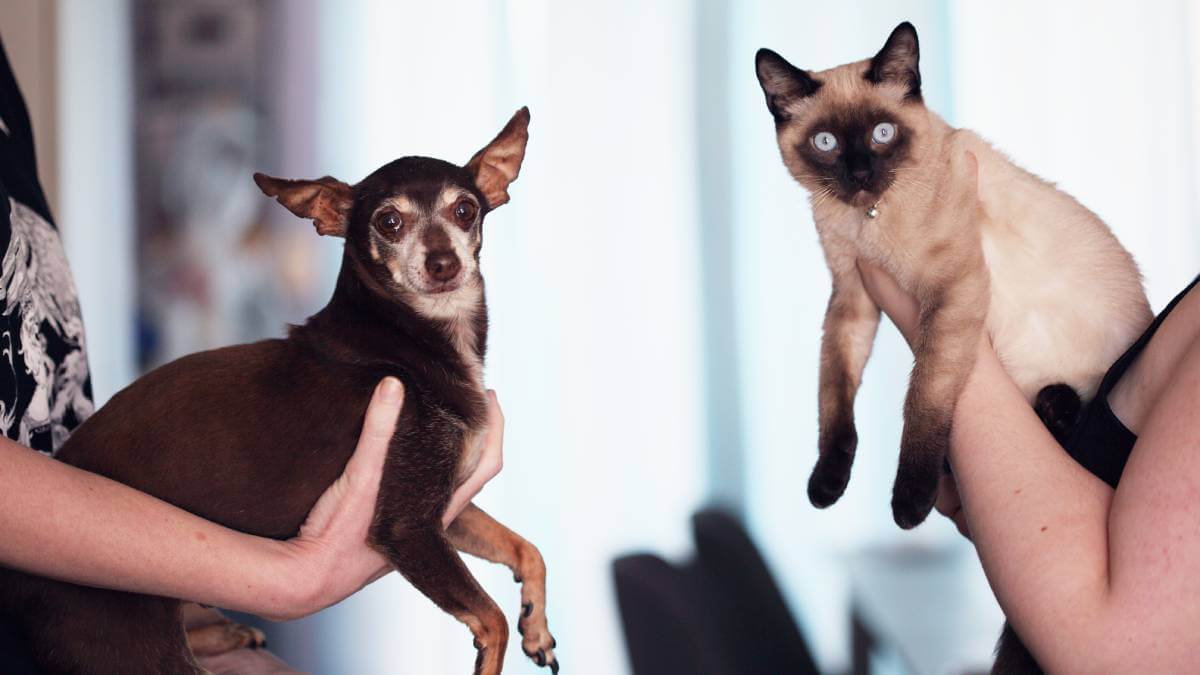Pet ownership has several health benefits. Studies have shown that having pets can help reduce stress levels, lower blood pressure and improve mental wellbeing. They also bring joy and companionship.
However, some new pet owners are unaware of the great responsibility that comes with adopting an animal. This means many people are making mistakes that put their pets at risk. Whether it is ignoring the importance of a balanced diet or misinterpreting body language, these mistakes can have serious consequences for our beloved furry friends.
Here are eight mistakes that pet owners frequently make and how to prevent them.
Not training your dog
Obedience training plays a crucial role in the development of dogs, it equips them with essential skills needed to behave well. When dogs are taught to be obedient, they gain a level of self-control that can help prevent behavioural issues such as aggression.
Proper training instils an understanding of boundaries, builds trust and promotes a harmonious relationship between dogs and their owners.
A poorly trained dog can be a potential threat to humans and other dogs. To minimise the chance of issues, it is important to take the dog to obedience classes or enlist the help of a professional trainer.
Not spaying or neutering
Spaying or neutering refers to the surgical procedure of removing the reproductive organs of pets to prevent them from reproducing. This procedure is important as it helps control pet overpopulation and significantly reduces the risk of infection in pets. These procedures are also known to reduce aggression and territorial behaviour.
Inadequate exercise

Pets need regular exercise to maintain their physical and mental health. Regular exercise prevents weight gain and strengthens muscles and bones. It also provides an outlet for energy, reducing the likelihood of behavioural issues caused by pent-up energy. Not exercising enough puts pets at risk of obesity and cardiovascular issues.
The amount of exercise required depends on the breed and size of the pet, but veterinarians generally recommend at least 30 minutes of daily exercise. Walking is not the only exercise you can engage them in, activities such as fetch and swimming can also be used to make exercise a part of your pet’s routine.
Not giving them enough attention
Pets, just like children, require mental and physical attention in order to feel connected with their owners and prevent behavioural issues. Neglecting your pet can cause them to become aggressive or withdrawn and may lead to detrimental habits such as excessive barking, howling or chewing the furniture.
Spending quality time with your pet is one of the best things you can do for them, as this strengthens the bond between you and enhances their overall wellbeing. If you cannot spend a lot of time with them due to work or social commitments, make sure to provide interactive toys and schedule regular play or training sessions to keep them mentally and physically stimulated.
Unbalanced diet and nutrition
Feeding pets a balanced and appropriate diet is crucial for their overall health. Unfortunately, many owners make the mistake of providing improper or low-quality food, which can result in nutritional deficiencies and put the pet at risk of infections and bad bone health. It is important to consult with a veterinarian to determine a suitable diet for the pet’s breed and age. It is also equally important to follow recommended serving sizes to avoid overfeeding, which leads to obesity.
Leaving pets alone for an extended period of time
Leaving pets alone for long durations can lead to separation anxiety and emotional distress. Dogs, in particular, are social animals that thrive on companionship. When planning a holiday where your pet cannot come with you, it is important to make appropriate arrangements to ensure they receive the proper care and attention. Employing pet sitters or enrolling them in a daycare helps them maintain social interaction and mental stimulation while they are separated from you.
Skipping deworming and parasite prevention
Failing to provide regular protection against parasites, such as fleas and heartworms, can have severe consequences for pets. These parasites can transmit diseases that can make your pet very sick.
Harmful ringworm-causing fungi can cause round bald patches on the pet’s skin and cause severe discomfort. If you like taking a walk with your pets, it is important to check them for ticks after every walk and remove them promptly.
Not providing collars or identification tags
Most people do not realise that a lack of proper identification puts pets at risk of being lost and unable to be reunited with their owners. Giving pets collars and identification tags can greatly increase the chances of a lost pet being returned home safely. It also helps prevent them from being mistaken for stray animals, which could cause them to be taken to a shelter.
As responsible pet owners, it is your duty to be aware of and avoid common mistakes that can put your beloved pets at risk. It is important to remember to consult your veterinarian for personalised guidance and follow best practices to create a safe and nurturing environment for your pets.
Do you have pets? How do you keep them safe and happy? Let us know in the comments section below.
Also read: Vet shares his list of the worst dog breeds to own


This article did not include microchipping one’s pet, arguably just as – if not more – important than a collar and tag, which can be lost. The procedure costs as little as $20 if getting it done along with a check-up or spaying and neutering, so really there is no excuse at all for not having this done.